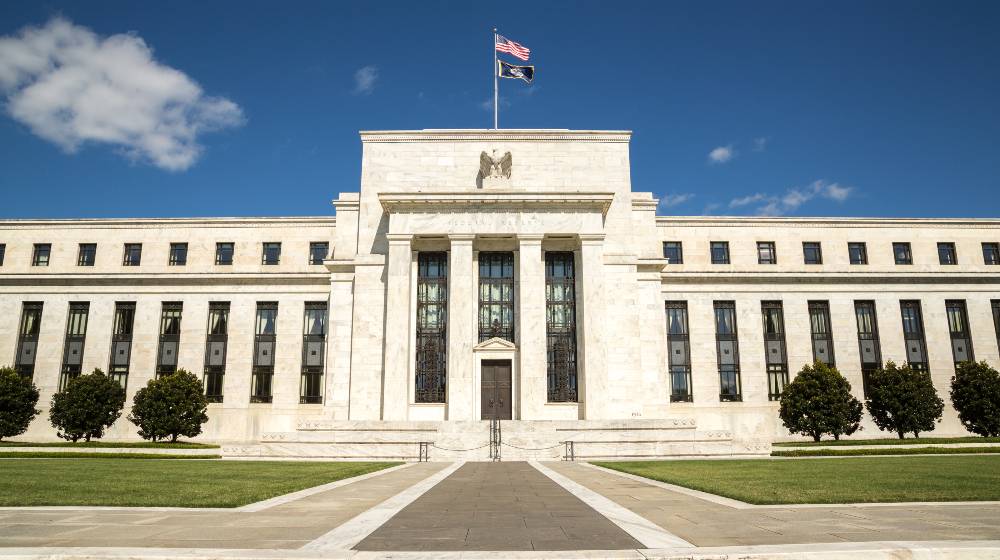Bonds
Federal Reserve to Start Tapering, Buy Less Bonds This Year

Last Friday, Jerome Powell gave what might be his final speech as chairman of the Federal Reserve. The bank will continue its easy money approach in light of the COVID pandemic. However, Powell is inclined to taper off bond purchases by the end of the year.
RELATED: Fed Intervention Will Now Include Buying Individual Corporate Bonds
Powell Delivered Jackson Hole Speech
Powell gave his half-hour speech during the Jackson Hole Economic Policy symposium last Friday. Due to the resurgence of the COVID-19 delta variant, organizers turned the meeting into a virtual one instead.
Powell reiterated the Federal Reserve’s commitment to continue the ongoing easy money policy. As long as the coronavirus continues to affect the economy, the Fed will retain the low-interest rates and the bond purchases.
As a result, stocks went up Friday as the US dollar’s value dropped compared to other currencies. Cliff Hodge, chief investment officer for Cornerstone Wealth, noted the effect on the market. “An uber-dovish speech from Jerome Powell has equity markets setting new all-time highs,” he said.
Jobs Market Will Need More Time To Take Off
The Federal Reserve chairman highlighted the changes in the job market. Last July, businesses managed to add nearly a million jobs to the payroll.
As a result, the unemployment rate fell to 5.4%. Powell said that employment will pick up some more in the next few months.
However, he still sees a lot of room for improvement. The current workforce is about 6 million Americans short of the number of workers in February 2020.
This is the month before the pandemic broke out. 5 million of the missing workers hail from the service sector. This group was the hardest hit when retail and food outlets closed for safety concerns.
Inflation Remains High, but the Fed Remains Confident
With the pandemic disrupting the supply chain, many items now cost more or are becoming scarcer. Even if the Federal Reserve expected a slight uptick in inflation rates, the reality is more than what the bank expected.
Instead of the expected 2.4% rise in the personal consumption expenditures price index (PCE), the US is now dealing with a 4.2%. However, it’s only July. The Fed’s estimate of 2.4% is for the whole of 2021.
Despite the fears of continually rising inflation, Powell and other Fed officials insist that it is only a temporary setback. The bank uses the term “transitory” to describe the current situation.
“Inflation at these levels is, of course, a cause for concern. But that concern is tempered by a number of factors that suggest that these elevated readings are likely to prove temporary,” he said.
Inflation is mostly occurring in a “narrow group of goods and services that have been directly affected by the pandemic and the reopening of the economy,” he added. For some items such as cars and houses, prices are already leveling.
Used car prices surged because demand rose even as supplies were low. However, the supply is slowly returning to normal.
Worrying Trends
Despite the Fed’s assurance that things will go back to normal, consumer sentiment fell by 13.4% in August. The main reason? Rising inflation, minimal increases in wages, and lower employment rates (even as jobs are plentiful).
One worrisome angle is the scenario where coronavirus continues to plague cities and states across America. The economy is currently chugging along despite the resurgence.
However, higher incidences of outbreaks and new cases might cause some areas to resume lockdowns. At the least, some cities may require further social distancing measures to halt the spread.
Tapering Bond Purchases by End of 2021
Surprisingly, Powell said that the Fed is now open to start reducing their easy money measures. The Fed chairman doesn’t want to overreact prematurely to inflation, but he admits to the possibility of tapering bond purchases. Currently, the FED spends $120 billion a month to buy debt.
By the end of the year, the central bank may start reducing its bond purchases. The state of the economy this fall will be the determining factor. This early, investors believe that the Fed will confirm their tapering during the September meeting of the Federal Open market Committee.
“The timing and pace of the coming reduction in asset purchases will not be intended to carry a direct signal regarding the timing of interest rate liftoff, for which we have articulated a different and substantially more stringent test,” Powell said.
Watch the CGTN America video reporting that US Fed Chair Powell says tapering could start at end of the year:
Do you agree with the Fed that they will strongly consider tapering bond purchases by the end of the year? Or, do you think that it’s either too late or too at that point?
Let us know what you think about the current state of the US economy. Share your comments below.
















1 Comment
I’m on ssiseverly disabled and need surgery I’m eligible for a stimuli check. It’s has .my direct deposit I never got the first check. This economy is horrible bonds ,stocks nobody trusts a u guys.